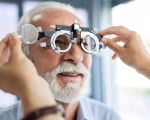- 1- Importance of Eye Care for Better Vision
- 2- Top Tips for Preventive Eye Care
- 3- Common Eye Conditions and How to Prevent Them
- 4- Nutrition for Healthy Eyes
- 5- Real-Life Story of Preventive Eye Care
1. Importance of Eye Care for Better Vision
Good eye care is essential for maintaining optimal vision throughout your life. Vision problems can develop gradually over time, often without obvious signs, which makes preventive care crucial. Taking steps to protect your eyes today can help prevent common eye issues such as cataracts, macular degeneration, and glaucoma. Just as you visit your doctor regularly for general health, your eyes require ongoing attention to ensure they stay healthy and functional as you age. Preventive eye care not only improves your vision but also helps you avoid expensive and sometimes irreversible damage to your eyesight.
2. Top Tips for Preventive Eye Care
To maintain healthy vision, you need to adopt certain habits and practices that keep your eyes in top condition. Below are some top tips for preventing eye issues and maintaining better vision:
- Regular Eye Check-ups: Scheduling regular eye exams with an optometrist or ophthalmologist is key to detecting early signs of eye disease. Regular eye exams can catch problems before they develop into serious issues. Aim for an eye exam every 1-2 years, depending on your age and health status.
- Protect Your Eyes from UV Radiation: Ultraviolet (UV) rays from the sun can cause long-term damage to your eyes, leading to cataracts or macular degeneration. Always wear sunglasses that block 100% of UVA and UVB rays to protect your eyes when you're outdoors.
- Take Screen Breaks: Prolonged exposure to screens can lead to digital eye strain, causing discomfort, dryness, and blurred vision. Follow the 20-20-20 rule: every 20 minutes, look at something 20 feet away for 20 seconds to reduce strain on your eyes.
- Practice Good Hygiene: Keeping your eyes clean and avoiding touching them with dirty hands can help prevent infections like conjunctivitis. Also, remove makeup carefully and avoid sharing eye products.
3. Common Eye Conditions and How to Prevent Them
There are several common eye conditions that can affect your vision, but with the right preventive measures, you can reduce the risk of developing these problems:
- Cataracts: Cataracts are a clouding of the lens in the eye, leading to blurry vision. To prevent cataracts, protect your eyes from UV light, eat a diet rich in antioxidants, and avoid smoking.
- Macular Degeneration: This age-related condition affects the central vision and can lead to blindness if untreated. Prevent macular degeneration by eating foods high in lutein and zeaxanthin, wearing sunglasses, and maintaining a healthy lifestyle.
- Glaucoma: Glaucoma is a group of eye diseases that damage the optic nerve, often due to increased eye pressure. Prevent glaucoma by managing your eye pressure through regular check-ups and early intervention, particularly if you have a family history of the disease.
- Dry Eyes: Dry eye syndrome can cause discomfort and affect vision. Prevent dry eyes by staying hydrated, using artificial tears when needed, and maintaining a good environment by reducing exposure to air conditioning and smoke.
4. Nutrition for Healthy Eyes
A well-balanced diet rich in vitamins and minerals can significantly benefit your eye health. Incorporating certain nutrients into your diet is essential to preventing eye diseases and maintaining good vision:
- Vitamin A: This vitamin is essential for maintaining good vision, particularly in low-light conditions. Foods rich in vitamin A include carrots, sweet potatoes, and leafy greens like spinach.
- Omega-3 Fatty Acids: These healthy fats are known to support eye health by preventing dry eyes and reducing the risk of macular degeneration. Include fatty fish like salmon, walnuts, and flaxseeds in your diet.
- Lutein and Zeaxanthin: These antioxidants are found in green leafy vegetables, eggs, and corn, and they help protect your eyes from harmful blue light and UV damage.
- Vitamin C: Vitamin C supports the blood vessels in your eyes and reduces the risk of cataracts. Foods like oranges, strawberries, and bell peppers are excellent sources of vitamin C.
5. Real-Life Story of Preventive Eye Care
A few years ago, my friend Sarah noticed that her vision was becoming blurry and she was experiencing frequent headaches. She had been neglecting regular eye exams, assuming that her vision was fine. After a visit to the optometrist, Sarah was diagnosed with early-stage glaucoma, a condition that could have led to permanent vision loss. Thankfully, because her condition was detected early, her optometrist was able to begin treatment and manage her eye pressure. Sarah now schedules regular eye exams, wears UV-blocking sunglasses, and maintains a healthy diet to support her eye health. Her experience serves as a reminder of the importance of preventive eye care, and how it can make all the difference in preserving your vision.








